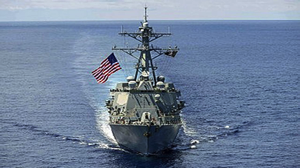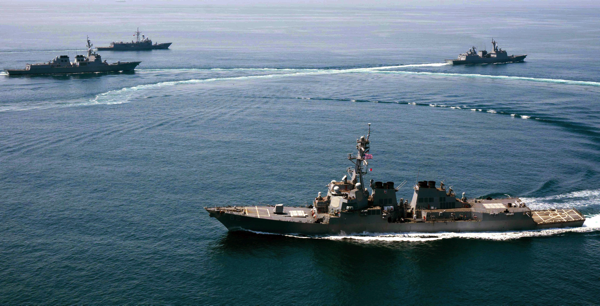Is punishment the best way to improve performance in the Navy?

Is It Time for More Punishment to Improve Performance?

In my decades of root cause analysis, less than 2% of incidents are caused by some sort of willful action that does not have a system cause. However, in many incident responses, companies discipline people for mistakes that were caused by system problems. This unwarranted punishment leads to:
- Covering up problems.
- Lying about what people did.
- Morale issues when people are punished for things that were not their fault.
- Mystery incidents that no one seems to know anything about (no one will talk).
- Poor performance because the root causes of the problems are not being addressed.
Thus, I was disappointed when I saw the US Navy resort to discipline before the root cause analysis was completed after the collision of the USS Fitzgerald. Then again, more discipline was used (this time against an Admiral) after the collision of the USS John S. McCain.
I wrote several articles about the collisions:
What is the Root Cause of the USS Fitzgerald Collision?
US Navy 7th Fleet Announces Blame for Crash of the USS Fitzgerald
USS Fitzgerald & USS John S McCain Collisions: Response to Feedback from a Reader
Several senior naval officers and others said that discipline was needed for Navy personnel when a mission fails, or a ship collides with another.
This brought to mind two sayings that I learned in the Navy. The first is:
The beatings will continue until morale improves.
The second is:
Why be fair when you can be arbitrary?
Do people in the Navy really respond to random discipline? The kind of discipline that’s been proven not to work in the civilian world?
My Experience and Reflections

I spent 7 years in the US Navy and have had close contact with many people in the Navy since I left to start my civilian career. What I can tell you is this:
- Being at sea is different than working in a civilian job
- The Navy generally has a stricter set of operating rules than a civilian workforce does.
- There is a wider range of disciplinary actions that are available in the Navy than in the civilian world. (Although flogging and keel-hauling have been eliminated.)
- You can’t quit the Navy if you have a bad boss.
- It’s difficult to fire someone that works for you if they are incompetent (you are stuck with those who you are assigned to lead).
- People ARE NOT different. They don’t become some sort of robot just because they joined the Navy.
Why did I include point #6 above? Because I’m often told that discipline is needed in the Navy to improve performance (One Admiral told me that it “sharpens the Commanding Officers game”).
It seems that some believe that senior naval officers (people commanding Navy ships – the Commanding Officers or COs) would try less hard, be less alert, and have worse performance if they didn’t have the threat of being relieved of command if they run into another ship or run aground.
Yes – the CO is ultimately responsible. Therefore, how could it NOT be the CO’s fault? They have ultimate authority on their ship … don’t they?
Let’s look at an example. What if:
- A ship was assigned a rigorous operational schedule of demanding technical missions.
- The ship had several key pieces of equipment that had been reported as broken (because of a lack of time, parts, and money to perform maintenance).
- The ship had many junior, barely qualified personnel serving in key positions because of the Navy’s planned rotation of officers and enlisted personnel and planned reduction of ashore training before new personnel arrived for their tour of duty.
- The ship was undermanned because new ships were designed with new, smaller crews but still had the same work to be performed as on older ships with 20-30% more people. This saved the Navy budget money – especially during the time of budget sequester.
- The ship had several key personnel left ashore – with no replacement – because they were pregnant.
- The CO was new to the ship and had little experience with this type of ship because he was assigned wartime duties ashore in Iraq during the Gulf Wars and missed an Executive Officer and a Department Head tours that would have provided more applicable experience and knowledge for this assignment.
- People were fatigued after several tough evolutions but still had to drive the ship through a narrow, busy straight to get to their next assigned mission.
Is any of this under the CO’s control? Don’t these circumstances contribute to a mission failure if one occurs (like a collision)? Would discipline make any of these factors change?
Does telling the CO that you are going to punish him (or her) if he or his crew makes a mistake make ANY difference?
Please leave me your comments. I’d be interested in what you have to say.




